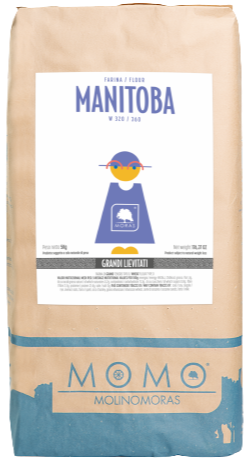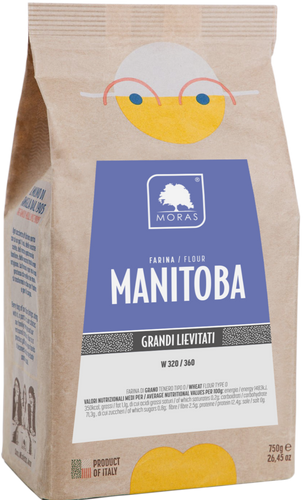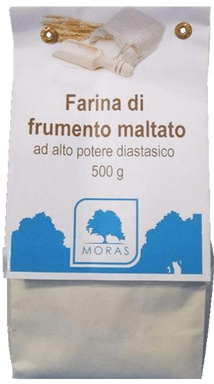


High strength Manitoba flour
Manitoba to be used for doughs that require a good amount of gluten and for very long leavenings. It is recommended for maturing of 48/72 hours.
Net weight: 5 kg. Also available in 1 kg package size.
Strength:

Usage tips: suitable for preparing panettone, pandoro, focaccia, colomba, pinze, and other large leavened products, as well as krapfen and bomboloni.
Soft wheat flour type 0
May contain: wheat, rye, barley, oats, spelt, kamut, soy, sesame seeds, lupins, milk (including lactose)
Nutrition declaration - average values per 100g of product: ENERGY 1483kJ, 350kcal; FAT 1.1g of which saturates 0.2g; CARBOHYDRATES 71.3g, of which SUGARS 0.8g; FIBRE 2.5g; PROTEIN 12.4g; SALT 0g
Package: 5 kg | paper bag.
Store in a dry and airy place, avoiding direct contact with walls and floor.
Lot and expiration date: are indicated on the package.
Headquarters and factory: Molino Moras S.r.l. – Via Palma, 40 Trivignano Udinese (UD)





